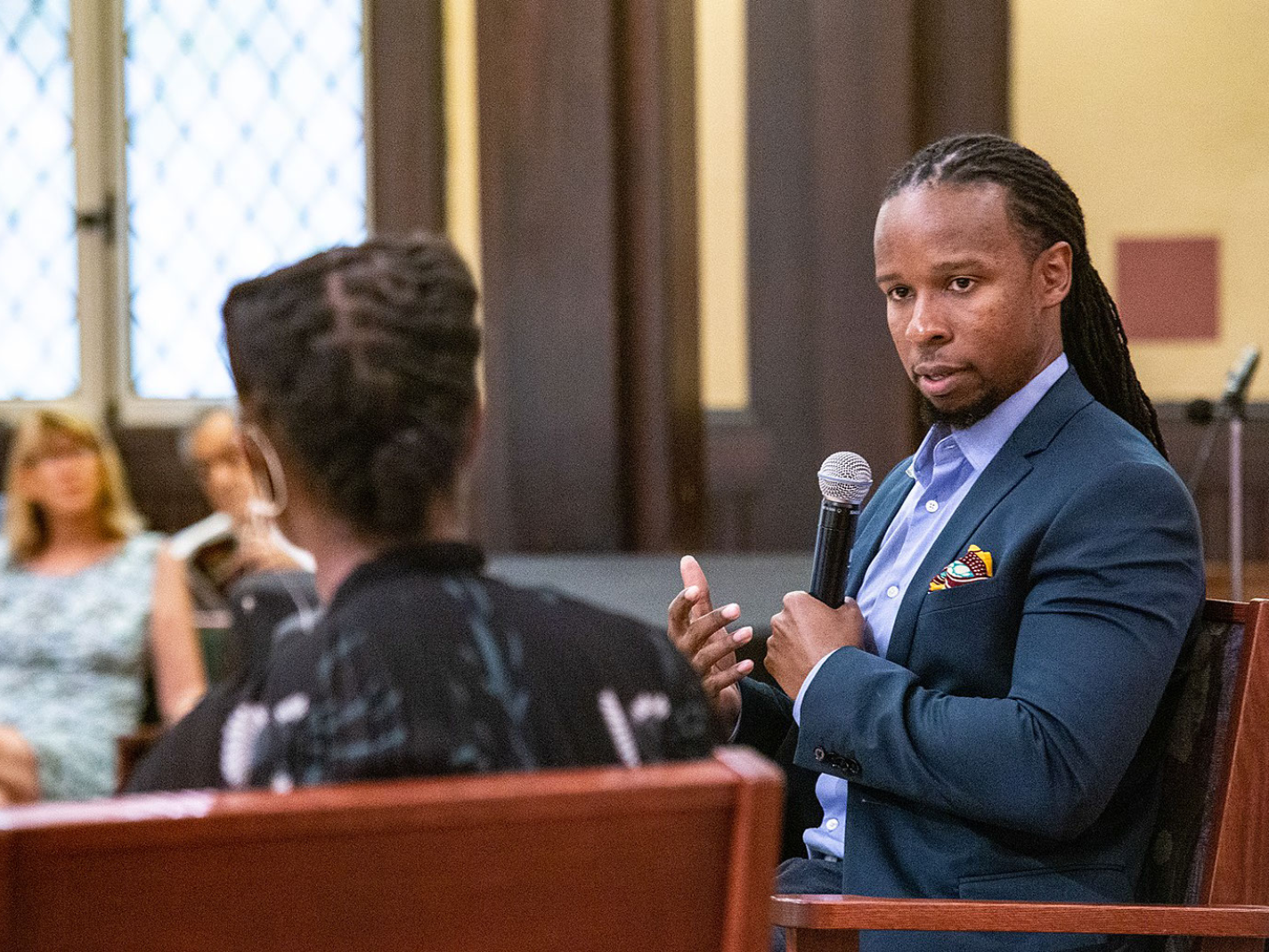
“Antiracism” guru Dr. Ibram X. Kendi strikes again. In an emotionally taxing column published by The Atlantic, a melodramatic Kendi laments the alleged misappropriation and distortions of Dr. Martin Luther King, Jr. at the hands of conservatives opposed to critical race theory (CRT). Kendi disparages “Reagan Republicans then and Trump Republicans today” as King’s “modern-day assassins.”
The second assassination of King is the latest assassination of history. The war on science, on expertise, on facts, on journalism, on democracy necessitates a concomitant war on history. And the war on history is the war on education—as history is essentially educational. If an anti-racist King can be turned into a color-blind conservator of racism, then anyone and anything from history can be assassinated.
Kendi’s mishmash of rhetorical ambiguities like “racial inequities,” “white people internalizing notions of superiority,” and “a color-blind conservator of racism” is a second-rate attempt to elevate his defense of CRT to the level of Dr. King’s advocacy for civil rights. He writes, “Those who distort King’s dream are now also distorting critical race theory, and distorting CRT to distort King.”
Is ideological alignment with antiracism a pre-requisite to invoke Dr. King’s words? Should CRT’s detractors, from all racial backgrounds and political persuasions, be shunned from talking about the fruits of the Civil Rights Movement, or be labeled as reminiscent of the snipers who assassinated Dr. King? Would permission to quote Dr. King also require mischaracterizing our nation’s history and way of life?
Kendi’s vision for an antiracist America is an ahistorical extension of King’s dream for “an action program to get rid of the last vestiges of segregation and discrimination.” This vision has two major philosophical components, both of which are debatable: 1) race is the determinative factor in human enterprise and in explaining disparities; and 2) we need antiracism to combat racism. Both components are faulty on practical and theoretical grounds. But more tellingly, they are emblematic of the cartoonish and arrogant worldview held by race baiters who want to immortalize the sins of America’s past, hijack giants like Dr. King to advance a much narrower political agenda, and suffocate the freedom to think differently.
Reality is way messier than the antiracist prognosis of an America paralyzed by rampant racism disguised as colorblindness and heartless, oppressive “pro-slavery Founding Fathers.” We, as a nation, have made tremendous progress in addressing racism, bigotry, and inequality.
The Brookings Institute, a center-left thinktank, released a study on America’s racial progress in 1998: In 1940, 60 percent of employed black women worked as domestic servants; in 1998, the number was down to 2.2 percent, while 60 percent held white-collar jobs. In 1964, only 18 percent of whites claimed to have a friend who was black; in 1998, 86 percent said that they did, while 87 percent of blacks stated they had white friends. More recently, an October 2020 Pew surveyfound that more Americans hold positive views about the nation’s long-term rise in racial and ethnic diversity than in 2016. “America of color” has also become more diverse by all measurable standards—a March 2020 Pew survey shows growing diversity in national origins, socioeconomic backgrounds, educational levels, and geographic distribution among black Americans, while an April 2021 Pew study also identifies within-group diversity among Asian Americans. How can these individuals be defined by group grievance and victim framing?
The soft bigotry of antiracism is that it crowds out other plausible explanations for inequality as misinformation and blunts intellectual inquiry seeking meaningful solutions. The achievement gap by income is twice as large as the achievement gap by race, after all. In general, the failures of our public education system have more to do with resource mismanagement, declining teacher quality, lowered standards, cultural degradation, and family breakdown than with so-called “systemic racism.” Further, unintended consequences of neoliberalism and a knowledge-based global economy impact a society’s most vulnerable populations, regardless of race.
Systemic racism is also an ill-equipped lens to account for other disparities. In March 2021, the City of San Diego released the country’s “most scientifically robust and thorough internal pay equity study” on a municipality level. The comprehensive and empirically sound research traces gender and racial-and-ethnic pay gaps in the city’s public workforce to societal factors other than racism and intentional bias, thereby invalidating the “unequal pay for equal work” argument.
58 years ago, Dr. King articulated his American dream anchored in “the content of their character.” Is his vision meant to be interpreted as Kendi-ist race essentialism or as a timeless prescription for general virtues that help advance society on the most basic level? On July 5, 1852, Frederick Douglass addressed the American public on the immorality of slavery and the various ills of white America at that time. In all his righteous indignation, Douglass still stood by the promise of equal liberty for all in the Declaration of Independence, a document misconstrued by critical race theorists as the colonizers’ means to preserve slavery and racist founding ideals.
Kendi’s antiracism, compared with the true legacy of American civil rights pioneers, is a short-lived season mistaken as a lifetime. And it is being exhausted by reality.
Image: Montclair Film, Wikimedia Commons, Creative Commons Attribution 2.0 Generic license, cropped.
Worse, Dr. King WAS A REPUBLICAN……
Remember that the Whig party split over the issue of slavery, with the Republican party formed to oppose it. When their first President — Lincoln — was elected in 1860, the Democrats seceeded. It was Democratic President Woodrow Wilson who segregated the Federal Government — it hadn’t been before.
Then-Senator John F. Kennedy, D-MA, voted AGAINST the 1957 Civil Rights Act and James Earle Ray was a supporter of George Wallace.
People tend to forget this…